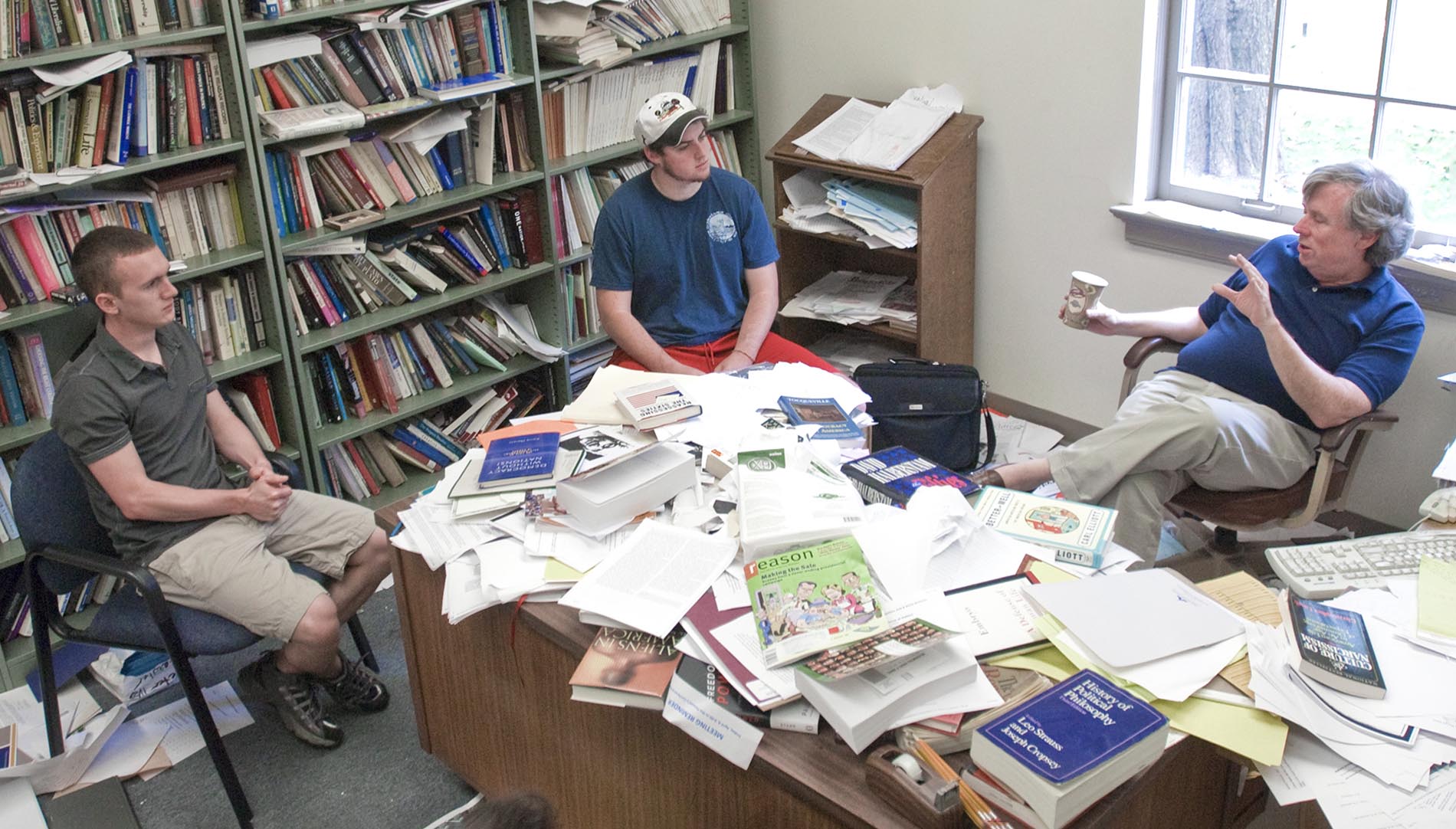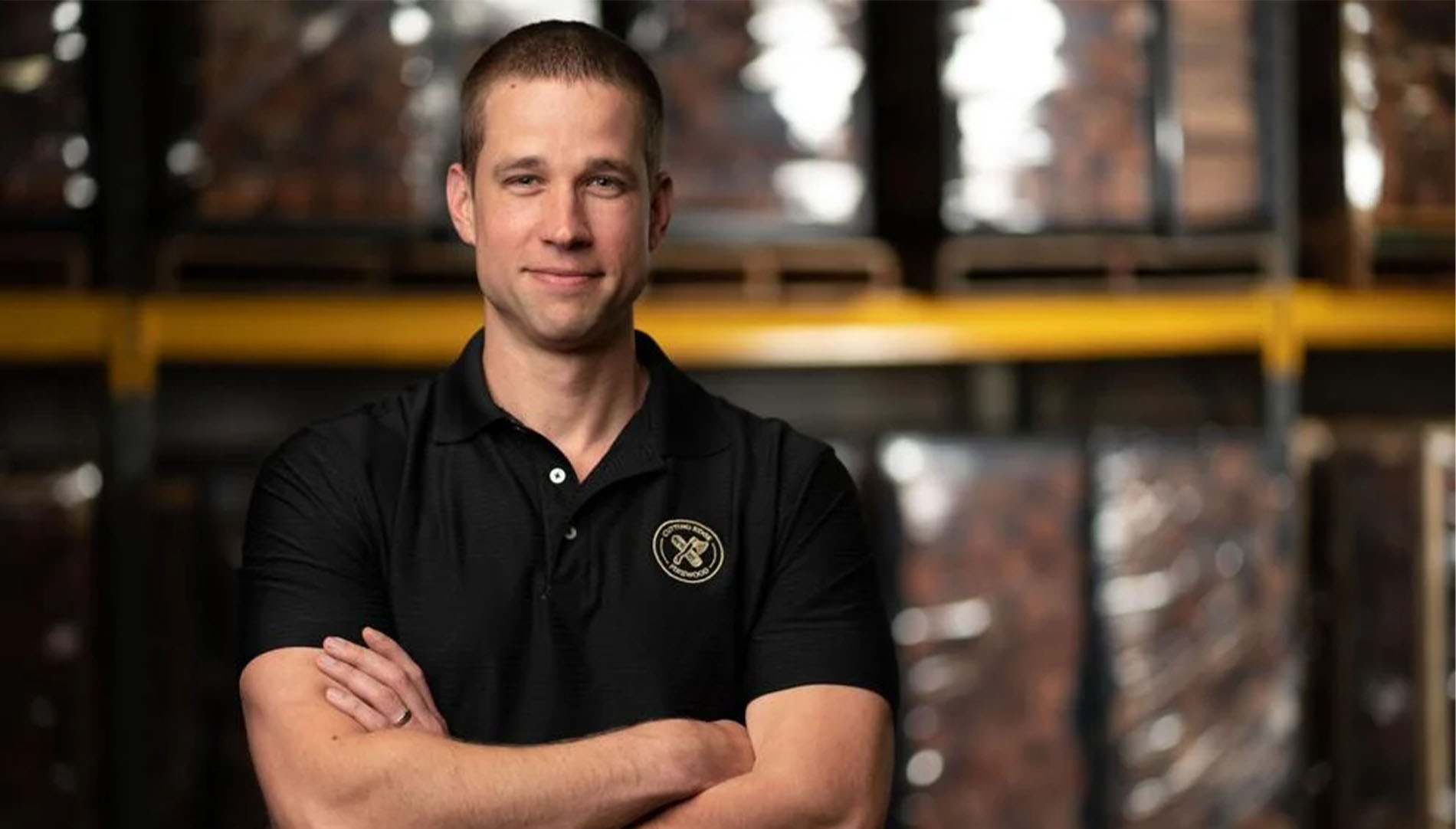Students revered him. And were in awe of him. His utter mess of an office was, for years, almost as iconic as Berry’s beautiful vistas. The late Professor Peter Lawler was the complete package: teacher, mentor, and nationally recognized scholar and thought leader. And it is not only at Berry that he remains appreciated.
Last May, Editor-in-Chief R.J. Snell of Public Discourse introduced a reprise of one of Lawler’s important essays with the following message:
“Peter Augustine Lawler, who served as Dana Professor of Government at Berry College until his death on May 23, 2017, was one of America’s most insightful critics of politics, religion, and culture. Throughout a highly productive career in which he wrote or edited eighteen books, Lawler brought his vast classical and Christian wisdom to bear on a wide range of contemporary issues, including conservatism, human dignity, bioethics, and technology. In a modern world that celebrates autonomy and individuality, Lawler called us to remember that we are relational beings, a fact that is grounded in our creation by a personal God.”
In the days that followed, Public Discourse ran three articles, written by renowned authors, “reflecting different aspects of Lawler’s legacy and its enduring relevance.”
In his piece on Lawler as a Catholic political philosopher, Dr. Daniel J. Mahoney, professor emeritus at Assumption University and senior writer at Law and Liberty, described the Berry legend as a “rich, dialectical, and irenic [peace-seeking] thinker who strove to prevent fruitful tensions from transforming into dangerously implacable oppositions.”
Mahoney went on to say, “In my estimation, he was the most penetrating and original American Catholic political thinker of his generation, a lover of his country who was a self-described ‘friendly critic’ of the modern democratic dispensation.”
Of Lawler’s writings on higher education, Dr. James Patterson wrote, “A proper understanding of education means embracing the creation of small liberal arts colleges in which students have the leisure to study and faculty the leisure to teach them. As Peter liked to say, every human person is ‘wondering and wandering,’ and higher education is where one wonders and wanders the most.
“In my estimation, he was the most penetrating and original American Catholic political thinker of his generation, a lover of his country who was a self-described ‘friendly critic’ of the modern democratic dispensation.
— Dr. Daniel J Mahoney
The associate professor and chair of politics at Ave Maria University went on to write, “As one finds throughout his work, Peter believed humans to be relational, meaning that they found purpose only in families, communities, and institutions, including liberal arts colleges like Berry College, where he had been a fixture on the faculty.”
Finally, Richard Reinsch, senior fellow at the Heritage Foundation and columnist for its Daily Signal, stated in his essay on Lawler and recovering the American proposition: “Peter Augustine Lawler … spent much of his career building a philosophical foundation for a school of thought he dubbed ‘Built Better Than They Knew Studies.’ These studies center around the idea that, although America’s Founders knew their achievements to be remarkable, the philosophical sources of their political project were even greater and richer than they realized, as the studies’ name suggests.”
To paraphrase Lawler, he wrote, “they weren’t fully aware of the real shape and meaning of their eighteenth-century constitutional glory.”
These are just some of the ways the Berry legend is remembered on a national basis. Even more important are the ways he is memorialized in the hearts and minds of the countless alumni lucky enough to have had a class with their beloved “Dr. Lawler” or to have been welcomed by his wry smile through his always-open office door.
Built better than he knew.



